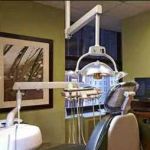Best Ways to Maintain Your Teeth After Dental Treatment: Tips for Long-lasting Oral Health
- 1. Understanding Post-Treatment Dental Care
- 2. Essential Tips for Maintaining Teeth After Dental Treatment
- 3. Importance of Regular Dental Checkups
- 4. Nutrition and Its Impact on Dental Health
- 5. Common Dental Issues to Watch for After Treatment
- 6. When to Seek Professional Help
1. Understanding Post-Treatment Dental Care
After dental treatment, whether it’s a cleaning, filling, or more extensive work like crowns or implants, it’s crucial to follow proper post-treatment care. Maintaining good oral hygiene after treatment is essential to ensuring that the results last. Poor care can lead to complications such as infections, discomfort, or the treatment not holding as expected. In this article, we will explore the best ways to care for your teeth after dental treatment to ensure they remain strong, healthy, and beautiful.
2. Essential Tips for Maintaining Teeth After Dental Treatment
Proper care following dental treatment can prevent a range of issues and extend the lifespan of your treatment. Here are essential tips for maintaining your teeth:
- Brush Regularly: Brush your teeth at least twice a day using fluoride toothpaste. Be gentle, especially if you’ve had work done that involves sensitive gums or teeth.
- Floss Daily: Flossing removes food particles and plaque from between your teeth, preventing tooth decay and gum disease. Be gentle around treated areas.
- Avoid Hard Foods: After dental treatments, avoid biting down on hard foods that could damage newly treated teeth or cause discomfort.
- Use a Mouthguard: If you grind your teeth, wear a mouthguard to protect your treatment from excessive wear.
3. Importance of Regular Dental Checkups
Regular dental checkups are crucial to maintaining the health of your teeth post-treatment. Your dentist can identify any issues early on and address them before they become bigger problems. It is recommended to schedule checkups at least twice a year, or as advised by your dentist, to ensure the continued success of your dental treatment.
4. Nutrition and Its Impact on Dental Health
Your diet plays a significant role in the health of your teeth, especially after treatment. Foods rich in calcium, vitamins, and minerals can strengthen your enamel and help your teeth recover after procedures. Avoid sugary foods and drinks that can contribute to plaque build-up and tooth decay.
- Calcium: Found in dairy products and leafy greens, calcium helps strengthen teeth and bones.
- Vitamin D: Helps your body absorb calcium and is essential for bone health.
- Avoid Acidic Foods: Foods like citrus fruits and sodas can erode tooth enamel, especially after dental procedures.
5. Common Dental Issues to Watch for After Treatment
While post-treatment care can help prevent issues, some complications may still arise. Here are common dental issues you should watch for:
- Tooth Sensitivity: It’s normal to experience some sensitivity after treatment. If the sensitivity persists, consult your dentist.
- Gum Irritation: Swollen or bleeding gums may occur, especially after procedures like cleanings or fillings. If it doesn’t resolve, seek professional help.
- Discomfort or Pain: If pain continues or worsens after treatment, it could indicate an issue with the procedure or healing process.
6. When to Seek Professional Help
If you experience persistent discomfort, changes in your bite, or any other issues that concern you after dental treatment, it’s important to reach out to your dentist immediately. Timely professional intervention can prevent further complications and ensure that your dental work remains successful.
Maintaining your teeth after dental treatment is essential to the longevity and effectiveness of the procedure. By following the advice above, you can keep your smile healthy for years to come!
To learn more about the best ways to maintain your teeth after dental treatment, or to schedule a consultation, visit Dentistry Toothtruth and discover the best options for your dental care!







 Infuse Dental4.0 (292 review)
Infuse Dental4.0 (292 review) Doctor Lenz DDS Gentle Family Restorative Dentistry5.0 (4 review)
Doctor Lenz DDS Gentle Family Restorative Dentistry5.0 (4 review) Corsi Dental Associates4.0 (789 review)
Corsi Dental Associates4.0 (789 review) Excel Dental, Orthodontics & Implant Center4.0 (34 review)
Excel Dental, Orthodontics & Implant Center4.0 (34 review) Dental Smiles of West Chicago4.0 (124 review)
Dental Smiles of West Chicago4.0 (124 review) Coast Dental4.0 (545 review)
Coast Dental4.0 (545 review) The Importance of Oral Health Education During Pregnancy for a Healthy Pregnancy
The Importance of Oral Health Education During Pregnancy for a Healthy Pregnancy Best Tips for Brushing Your Teeth Properly for Healthy Gums: Essential Techniques for Oral Health
Best Tips for Brushing Your Teeth Properly for Healthy Gums: Essential Techniques for Oral Health Why Skipping Dental Checkups Can Lead to Bigger Oral Health Problems
Why Skipping Dental Checkups Can Lead to Bigger Oral Health Problems Advantages of Porcelain Dental Restorations
Advantages of Porcelain Dental Restorations How Can Diabetes Cause Tooth and Gum Problems? Preventing and Managing Oral Health Issues
How Can Diabetes Cause Tooth and Gum Problems? Preventing and Managing Oral Health Issues Healthy Habits for Promoting Good Oral Health and Hygiene: Tips for a Healthy Smile
Healthy Habits for Promoting Good Oral Health and Hygiene: Tips for a Healthy Smile